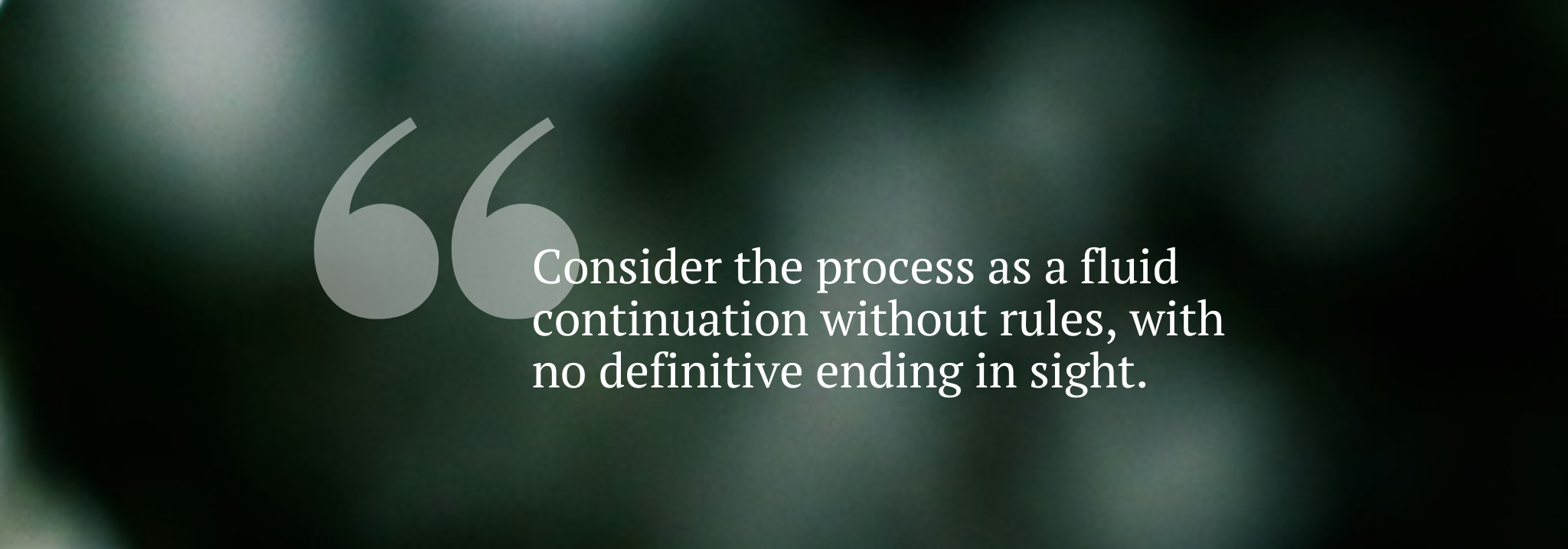While loss is a universal experience, it can often feel like uncharted territory. To help you find a way forward, we're debunking five common misconceptions
Grief is an experience that defies expectations. You’ll know this if you’ve ever lost a loved one, and felt physically unable to cry, no matter how much sadness you’re holding in your heart. You might have been given a certain amount of time off work to make space for your grief, only to be thrust back into daily responsibilities before you’ve found a way to express your pain. Perhaps you had a complicated relationship that now feels like a song without a finished melody – complex and forever unresolved, but still painful to listen to.
And then there’s the grief that resides quietly, when the phone calls stop and the sympathy cards have been put away – or perhaps it wasn’t acknowledged in the first place because the grief was for a life never lived, a part of you that was abandoned, or a place in time you can no longer return to.
Despite grief being such a universal human experience, many of us carry misconceptions about how it should look, feel, or unfold. These misunderstandings can leave us feeling isolated, adding an unnecessary burden to an already difficult journey. With that in mind, here are five myths that need debunking.
Myth: You only grieve when a person dies
When we talk about grief, most of us probably think about the period that follows the death of a loved one. You may picture funeral cars, flowers, and sympathy cards. But grief is a natural response to any kind of loss or change.
“The list of what someone could grieve over is endless,” explains counsellor Linzi Littleford. “It could be infertility, loss of a job, losing a sense of one’s identity, loss of health, loss of friendship, romantic separation, miscarriage...
“Grief can also be collective. Societies may grieve together in response to pandemics, war, or natural disasters, evoking a sense of communal understanding and sorrow.”
In addition to the wide range of circumstances that lead to grief, there is also a common misconception that people experience grief after the loss occurs. On the contrary, grief can be triggered by the expectation or anticipation of loss.
“Consider someone having a terminal diagnosis or a progressive illness, or a relationship heading towards an ending,” explains Linzi. “Anticipatory grief is complicated and difficult to understand, because the situation or person is still present, but the loss is already in process.”
Grief is also felt for what ‘could’ have been, for example, when related to a miscarriage. “Grieving something that ‘might have been’ is ambiguous and incredibly difficult to navigate, as it exists solely in the realm of what was hoped for,” says Linzi.
Myth: It’s best to keep busy during grief
Trying to distract yourself from grief is natural, and may feel like the only way you can get through the day. Linzi explains that while this may serve as a “temporary bridge” until you feel ready to engage in the grieving process, it shouldn’t be a long-term coping strategy.
“Quite simply, ignored feelings do not disappear. Unprocessed grief will remain unresolved and may resurface at a later date – sometimes during big life events, times of stress, or within relationships,” says Linzi. “Grief is natural, it is our body and mind’s way of adjusting to loss, and when we deny ourselves that process, we can become disconnected, lose our capacity for attachment, and develop patterns of emotional avoidance in other areas of life.”
Grief associated with someone with whom you had a difficult relationship, or were estranged from, can be particularly complex. Feelings such as guilt or anger may arise, alongside sadness, and even numbness. Those around you may even dismiss your reactions because you weren’t ‘close’ with the person before they died, but you might feel as though you’ve been grieving the loss of your relationship for a long time.
This messy, complicated grief is valid, and it’s important to find ways to work through it, whether that’s by talking to friends, seeking support from a counsellor, expressing yourself creatively, or joining a support group.

Myth: Grief always happens in stages
You may have heard of the Kübler-Ross model of grief, which depicts five specific stages: denial, anger, bargaining, depression, and acceptance. You’d be forgiven for thinking that these stages happen one after the other, but Linzi explains that this limited view of grief can be unhelpful at times.
“Having stages or steps to a grieving process implies that there is a linear timeline to follow, or a checklist, ever-moving forward towards an ending,” explains Linzi. This can leave you feeling as though you’re somehow ‘behind’ in the process, or grieving in the ‘wrong’ way if your experience doesn’t match up. But, as Linzi says, not everyone will feel anger, and not everyone reaches acceptance in a traditional sense – plus, the way you grieve is influenced by multiple factors including age, culture, religion, trauma, and attachment styles to name a few.
“Rather than invalidating personal experience or adhering to a staged model, let’s accept that grief is messy, unpredictable, and certainly not linear. Consider the process as a fluid continuation without rules, with no definitive ending in sight.”
Myth: Crying will help you process grief
According to Harvard Health Publishing, tears can release oxytocin and endorphins which may soothe both physical and emotional pain. And, often, there is a societal expectation that to work through loss you must ‘let it all out’ in the form of tears. When we put pressure on ourselves to perform what we think grief should look like, we deny ourselves the opportunity to express truthful emotions.
“All expressions are valid, and can be shown in a plethora of ways,” says Linzi, “whether that’s sadness, anger, numbness, tiredness, or even waves of relief. What matters is your authenticity. Being authentic to yourself while grieving means permitting yourself to feel how you actually feel.”
While doing this may not always be easy, and can feel isolating, staying connected to the truth of your inner landscape is absolutely essential.
Myth: Grief gets easier over time
They say time heals all wounds, but this narrative can lead to disappointment, or even the fear of losing touch with the person or event you have lost. Instead, it can be helpful to think of grief as something that, like you, evolves over time. Being present for the breadth and depth of the experience can be difficult, but ultimately, can help strengthen positive emotions.
“When we can honour our loss through the grieving process, we are also affirming and validating what was once real and important to us. Grief is not a sign that something has gone wrong but, rather, it is the loss of something or someone meaningful,” says Linzi.
Perhaps the greatest myth of all is that grief is something dark, something to be suppressed. Grief is not a flaw to be stuffed away or ignored – it’s simply love with nowhere to go. To be human means feeling deeply, forming connections, nurturing hope, and investing our hearts in others. When loss occurs, grief becomes an echo of those meaningful bonds, and when we honour grief, we begin to honour what, or who, matters to us most.


Comments